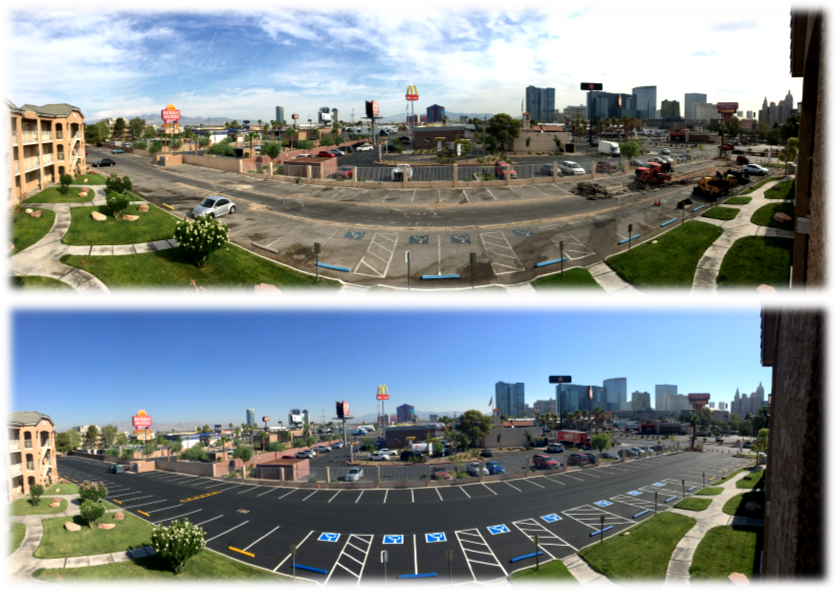Asphalt paving simply put, means installing a new road, street or parking lot. Asphalt is a cost effective surface that allows communities, parking lots, highways, etc. to be created at a lower price than installing the alternative concrete finished surface. The material itself consists of aggregates (sand, gravel, crushed stones) and is held together with a bituminous liquid or “glue”. All materials are loaded into asphalt heating tanks, heated towards engineers determined temperatures, and finally mixed until all of the aggregates are equally coated with the glue.
Why should you choose asphalt instead of concrete?
Cost: As mentioned previously, the main reason for choosing asphalt over concrete is money. To install one square foot of private asphalt can cost around $2.00 per square foot, whereas installing a concrete surface can cost $6.00-$8.00 per square square foot.
Timeline: In addition to cost, asphalt surfaces can be placed down much more quickly than concrete surfaces. Generally speaking, concrete surfaces require a large amount of time to prepare forms and internal rebars before the concrete itself is poured. Asphalt paving however can be installed immediately and without forms. Most important, asphalt can be driven on within 48 hours of being installed and compacted.
Repairs: Asphalt paving is generally chosen over concrete as it is also easier and cheaper to repair. Most asphalt paving can be removed by the usage of buckets on heavy equipment; concrete generally requires hammering which can increase the time to remove the product by %300 or more.
Downside of asphalt paving compared to concrete.
Useful Life: Developers and engineers do not always go with the cheaper option. It is clear that asphalt is cheaper and “easier” to install and maintain it does not last as long as concrete. Asphalt pavement will generally last 25 years where as concrete can 50 years and longer.
What is the installation process of asphalt pavement?
Prior to paving asphalt, much attention is put into the dirt or sub-grade beneath the road. The sub-grade must be compacted heavily. This compaction is the foundation underneath the roadway and the “tighter” more densely compacted it is the longer the asphalt surface will last. Contractors also, spend a lot of time on ensuring proper grading is conducted to the sub-grade as well. Grading prior to paving asphalt, ensures that the asphalt will be installed 1.) on a perfectly flat surface that results in a flat finished road and 2.) to ensure that all water flows across and off the finished asphalt road rather than puddling onsite; which will result in premature wearing and damage to the road.
Still have questions regarding asphalt paving?
Email us admin@pcclv.com and we will make sure to answer all of your questions right away.

